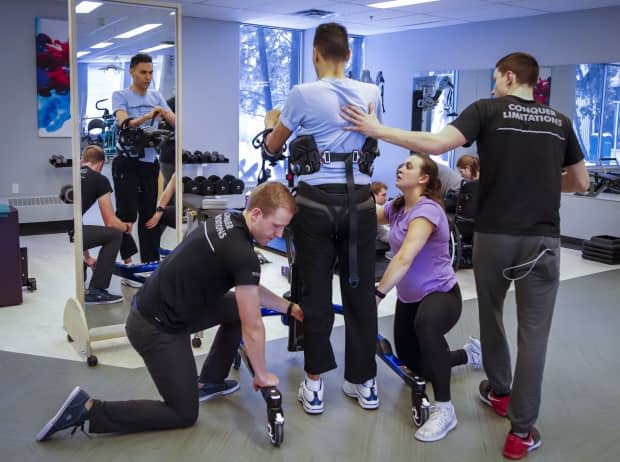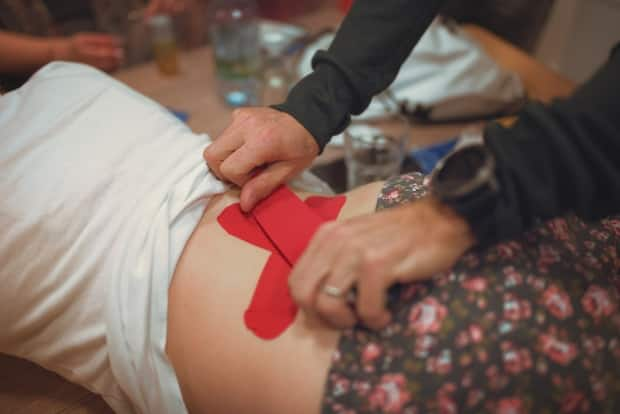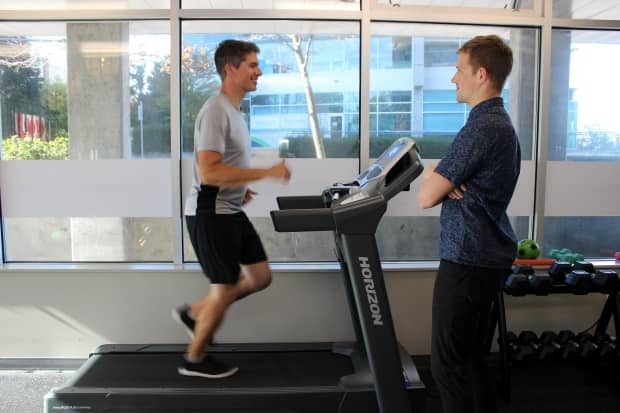Canadian physio grads have waited 18 months to get licensed. Now exams are cancelled for the 5th time

The organization responsible for administering clinical exams to certify physiotherapy graduates has scrapped all future virtual exams after its most recent bout of technical glitches last week.
The Canadian Alliance of Physiotherapy Regulators (CAPR) says it will now focus on offering in-person examinations.
It's the fifth time exams have been cancelled by CAPR since the start of the pandemic, leading to a backlog of more than 2,000 unlicensed candidates who are now calling on their provincial colleges to step up.
"Where is the end in this?" asked Christopher Brake, a physiotherapy graduate from the University of British Columbia.
Since Labour Day, he has been studying for his clinical exam in November to become a fully licensed physiotherapist.
It's the third time he has had to study for an exam that never materialized.
"Here I am in this profession that I love to be in, but I don't feel like that respect is reciprocated," he said, adding that many of his colleagues are struggling both financially and mentally due to CAPR's inability to offer the exam.
"I feel let down by my profession's regulators and the college. And it hurts. It honestly just really hurts."
In B.C., 334 candidates are waiting to take the exam. Across the country, there are more than 2,000, according to the Canadian Physiotherapy Association. Some have been waiting for more than 18 months, their careers stuck in limbo.
Graduates who pass the written exam may work as interim physiotherapists, but it's a position that also comes with restrictions. Interim physios often earn less, aren't able to specialize, and deal with the stigma attached to their perceived skill level.

In March 2020, in-person clinical exams were cancelled as the country adapted to the COVID-19 pandemic. They were cancelled again in November 2020 as CAPR worked to develop a pandemic-proof alternative.
CAPR then offered the exam virtually at the end of March 2021, but the platform crashed while some students were in the middle of the exam. Its latest bout of glitches occurred last week, which led to CAPR giving up on virtual exams altogether.
"[CAPR] is disheartened that this has been such a challenging and stressful situation for many, particularly the candidates," said CEO Katya Masnyk.
But candidates say they want action, not apologies.
'We need the colleges to step up'
In Canada, CAPR administers the exams, but licensing is regulated through provincial and territorial physiotherapy colleges — all of which have their own rules and bylaws.
There are calls from across the industry for provincial colleges to do more.
"We need the colleges to step up," said Amanda de Chastelain, president of the Canadian Physiotherapy Association.
"This is affecting our profession, this is affecting most importantly candidates and Canadians who need them working."
She says there is a national shortage of physiotherapists.
In the past 18 months, some colleges were able to adapt.
In June 2021, the College of Physical Therapists of B.C., along with UBC and the provincial Ministry of Health, offered virtual clinical exams to 75 candidates.
Physiotherapy Alberta College and Association followed a similar path: it developed its own post-graduate in-person clinical exam.
While these exams were meant as a temporary measure, Brake says they demonstrate how physiotherapy colleges have the ability to makes changes to the system.
"At the end of the day, it's up to the colleges to make changes on how they want us to be licensed," he said.

It's not just candidates and their physiotherapy associations that are calling for swift action. The licensing challenges have also concerned the professional community.
Maggie Bergeron is a registered physiotherapist in Ontario who is mentoring three interim physios waiting to take their clinical exam. She has watched candidates struggle for the past 18 months.
"That ongoing stress in their lives is, unfortunately, leading to some pretty serious mental health concerns from a growing number of residents which is becoming increasingly concerning to myself and other professionals in the industry," she said.
Overall, she feels colleges have been largely silent.
"It is the colleges who hire CAPR. It is ultimately up to the colleges to take action," said Bergeron.
De Chastelain, Brake, and Bergeron are calling on provincial colleges to find solutions to the ongoing issues, whether through alternative clinical exams administered by colleges and universities, or changing the bylaws that require clinical examinations in the first place, the efficacy of which many in the industry challenge.
What's next?
The future is once again uncertain for physiotherapy candidates. CAPR has not yet scheduled future exam dates.
Several colleges across Canada say they are meeting to determine how to proceed.
The College of Physiotherapists of Manitoba says it is in contact with the provincial government to discuss possible regulatory changes.
The College of Physiotherapists of New Brunswick decided Tuesday that it would invite any candidates that have been waiting for 18 months or more to apply for full licensure without requiring a clinical exam.
In B.C., the college is working with UBC to determine whether future exams are a possibility.

